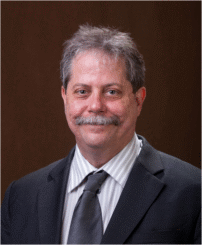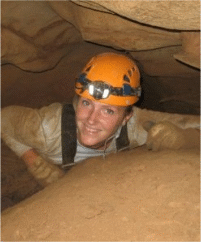
HYDROGEOLOGY OF KARST CONDITIONS: Part 1:
Applied Methods of Karst Hydrology
Karst landscape/aquifer systems are estimated to constitute about 15% of the earth's ice-free land surface and supply water resources to up to 25% of the world's population. But karst hydrogeology is extremely challenging and complex, and karst landscape/aquifer systems have difficult water supply problems both with access, as surface water can be lacking, and quality, as available groundwater may be susceptible to contamination.
Part 1 of this webinar series discusses the principles of karst hydrogeology and important methods for studying karst groundwater in epikarst, underground rivers and at springs. Specialized methods, different from those used in porous media or other "traditional" groundwater environments, are required to understand and monitor karst groundwater. These methods include identification of subsurface flow paths through direct exploration and mapping, dye tracing, potentiometric surface mapping and geophysics (geophysical and dye tracing methods are detailed in other webinars). Interpreting the background geochemical environment within karst flow systems can be useful for understanding aquifer evolution, microbial ecology and the fate and transport of contaminants. We will discuss high resolution methods for characterizing these environments.
This webinar is the first of a two-part series on Karst Hydrogeology. Although both webinars are designed to complement each other they can also be viewed independently.

Part 1 Highlights include:
- Introduction to karst aquifer/landscape systems
- Water-related environmental problems in karst systems
- Methods to understand geometry and behavior of karst flows
- Methods to monitor karst groundwater
Attendees are invited to actively participate during this live and interactive on-line web seminar. Discussion is planned following the webinar for those who want to continue the session. Bring your questions to the webinar and present them to the instructor and other participants for exploring the best solution.
| Fee: |
299.00 USD Per Computer Site (unlimited participants per site)
249.00 USD Per Computer Site (unlimited participants per site)
when Members also register for the following Webinar:

(discount will be applied during checkout when both are in your cart)
Pay one site registration fee and an unlimited number of participants from your organization can attend at that site.
|
| Instructors: |
Dr. Chris Groves and Ms. Lee Anne Bledsoe |
| Handouts: |
Copy of Webinar Slides (pdf)
Record of Attendance Form (pdf)
|
| Duration: |
1.5 hours plus Q&A
(no restrictions on time limit for extra Q&A!)
|
Professional
Development: |
Earn 1.5 Professional Development Hours (1.5 PDH)
 |
A Record of Attendance Form is included free with each webinar for your record keeping and individual PDH verification. We ask your on-site coordinator to return the completed and signed copy of the Form to us following the webinar for (1) maintaining a separate copy as a service to attendees and (2) forwarding to NIU confirming attendance for those who order certificates.
Attendees may also order an official a Course Completion Certificate from Northern Illinois University for a small administrative fee. The Certificate is optional and may be ordered separately following the webinar to confirm your attendance and showcase the certificate on your office wall. Instructions for ordering certificates are given during the webinar.

* This webinar is eligible for the 'BUY THREE, GET THREE' discount; however the two-part webinar series discount shown above cannot be combined with it.
Attendees will be invited to actively participate during this live and interactive on-line web seminar. Discussion is planned following the webinar for those who want to continue the session. Bring your questions to the webinar and present them to the instructor and other participants for exploring the best solution.
Instructors Bio
Dr. Chris Groves
 Dr. Chris Groves is the director of the Crawford Hydrology Laboratory and Hoffman Environmental Research Institute and is a Distinguished University Professor of Geography at Western Kentucky University. Since receiving a PhD In Environmental Sciences at the University of Virginia in 1993, Dr. Groves has developed an active international research program in basic and applied hydrogeology, geochemistry, and water resources. He currently serves as a co-leader of the United Nations Scientific Program "Environmental Change and Sustainability in Karst Systems," and as a member of the Governing Board of the International Research Center on Karst under the auspices of UNESCO. In 2013 he was nominated by China's Ministry of Land and Resources for the China Friendship Award, that nation's highest award for foreign experts. With more than 30 years of international experience in karst hydrogeology, Dr. Groves provides experienced oversight of karst groundwater flow investigations for Crawford Hydrology Laboratory.
Dr. Chris Groves is the director of the Crawford Hydrology Laboratory and Hoffman Environmental Research Institute and is a Distinguished University Professor of Geography at Western Kentucky University. Since receiving a PhD In Environmental Sciences at the University of Virginia in 1993, Dr. Groves has developed an active international research program in basic and applied hydrogeology, geochemistry, and water resources. He currently serves as a co-leader of the United Nations Scientific Program "Environmental Change and Sustainability in Karst Systems," and as a member of the Governing Board of the International Research Center on Karst under the auspices of UNESCO. In 2013 he was nominated by China's Ministry of Land and Resources for the China Friendship Award, that nation's highest award for foreign experts. With more than 30 years of international experience in karst hydrogeology, Dr. Groves provides experienced oversight of karst groundwater flow investigations for Crawford Hydrology Laboratory.
Ms. Lee Anne Bledsoe
 Mrs. Bledsoe is the manager for the Crawford Hydrology Laboratory at Western Kentucky University. She supervises all daily workings of the lab, including laboratory analysis, QA/QC, and field work, and communicates with clients. She has worked on dye traces for groundwater basin mapping, effluent and sewer pipe break investigations, determining groundwater flow routes from factories and quarries, and determining spring recharge areas.
Mrs. Bledsoe is the manager for the Crawford Hydrology Laboratory at Western Kentucky University. She supervises all daily workings of the lab, including laboratory analysis, QA/QC, and field work, and communicates with clients. She has worked on dye traces for groundwater basin mapping, effluent and sewer pipe break investigations, determining groundwater flow routes from factories and quarries, and determining spring recharge areas.
Mrs. Bledsoe also coordinates and assists in training and outreach events for the Hoffman Environmental Research Institute at Western Kentucky University. Before joining the Hoffman team, she worked for private research institutes and the National Park Service on water quality, hydrology, ecosystem restoration, and public health research projects. She is a Registered Sanitarian with the Department of Public Health for the State of Kentucky and is a certified onsite wastewater disposal inspector. Ms. Bledsoe is currently pursuing a Master of Science degree in Geoscience at Western Kentucky University.